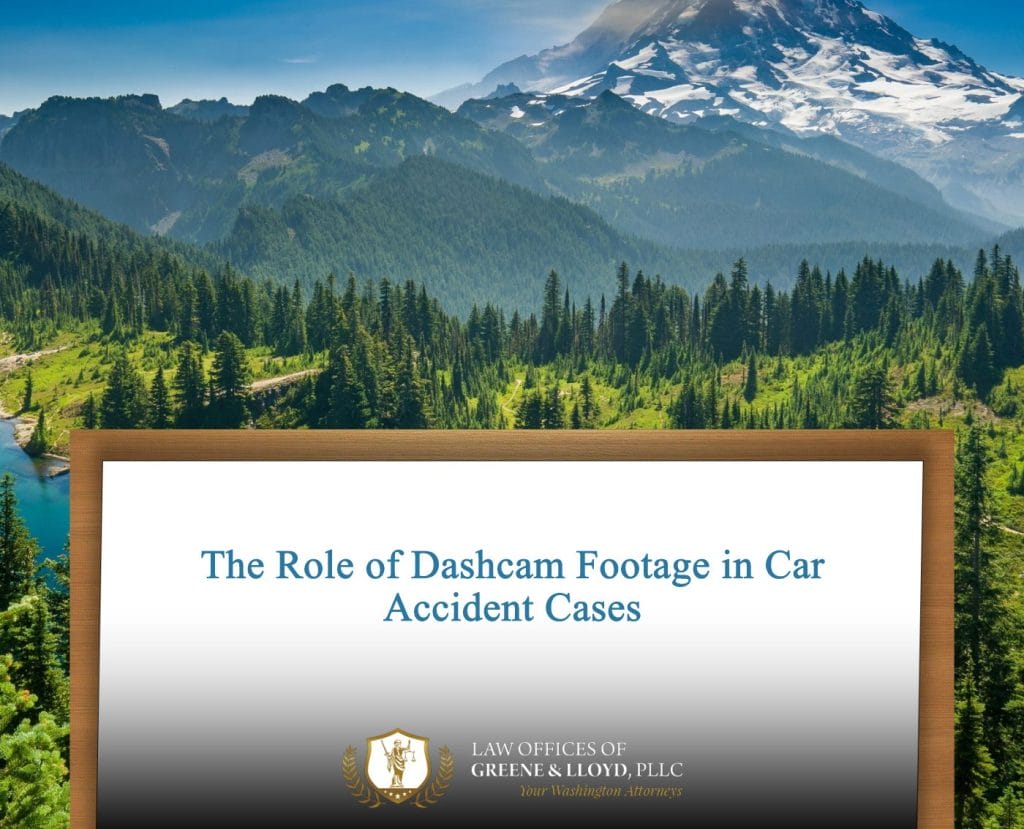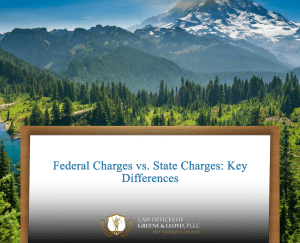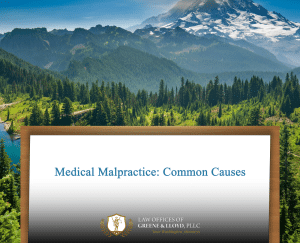## Understanding the Impact of Dashcam Footage in Car Accident Cases
When a car accident occurs, it can lead to a multitude of challenges for the involved parties, particularly when it comes to establishing liability. Dashcam footage car accident scenarios have increasingly become a significant tool in determining the facts surrounding these incidents. Dashcam technology, which captures real-time video and audio data, provides an objective window into the circumstances leading up to and following a collision. This technology plays an essential role in car accident cases, as it can either corroborate or contradict various claims made by drivers and witnesses. By offering undeniable evidence of the events surrounding an accident, dashcam footage can assist attorneys in effectively advocating for their clients.
Furthermore, the presence of dashcam footage can expedite the legal process. Often, the sheer availability of video evidence simplifies dispute resolution between insurance companies, leading to quicker settlements. Videos can serve as a neutral third-party account, thereby reducing the reliance on subjective testimonies that can vary from one person to another. With dashcams becoming more prevalent on the roads, understanding how this evidence is utilized in car accident cases is crucial for informed decision-making in legal contexts.
As dashcam footage becomes increasingly widespread, its role in car accident cases is of growing importance, emphasizing the advantages it offers in substantiating claims and speeding up legal processes.
## What is Dashcam Footage in Car Accidents?
Dashcam footage car accident refers to video recordings captured by cameras installed in vehicles, designed to record the road ahead and sometimes even the interior of the vehicle. These devices continually record while driving, storing footage that can be critical during an accident investigation. The technology is prevalent among both personal drivers and commercial fleet operators, often serving dual purposes of safety monitoring and incident documentation.
In automobile-related incidents, dashcam footage can include various aspects such as the actions of the vehicles involved, the behavior of pedestrians, road conditions, and even environmental factors such as weather. This footage can serve as a first-hand account of the events that occurred, helping to provide clarity during often chaotic circumstances. Understanding how dashcam footage operates is essential for both drivers and legal professionals engaged in accident cases.
Beyond simply documenting the moments before and after an accident, dashcam footage can include auditory data, such as conversations or sounds that may provide further context to the incident. This multi-faceted recording can greatly enhance the understanding of any car accident and therefore its potential implications in a legal setting.
## Why This Topic Matters
The relevance of dashcam footage car accident cases cannot be overstated, especially in a state like Washington, which has strict traffic laws and regulations. Understanding this topic goes beyond the technological aspect; it pertains to the rights and responsibilities of drivers who find themselves in accident scenarios. With increasing traffic incidents, the potential for disputes regarding liability has risen, making the decisive role of dashcam evidence vital.
In legal proceedings, the admissibility and reliability of dashcam footage can directly influence case outcomes. It can serve not only as evidence in court but also as a bargaining tool during settlement negotiations. For attorneys representing clients in car accidents, the acquisition and analysis of dashcam footage may be pivotal for building a compelling case. Having access to such reliable evidence enhances the ability to advocate effectively on behalf of clients, often leading to a favorable resolution.
Moreover, as dashcam adoption continues to grow, the legal implications surrounding their use become more significant. Laws and regulations concerning the usage of dashcams, storage of video evidence, and handling of footage in court are evolving. Keeping abreast of these changes is important for both legal professionals and drivers, highlighting why understanding dashcam footage’s role in car accident cases is an essential area of focus.
## The Legal Context of Dashcam Footage in Car Accident Cases
The integration of dashcam footage car accident within the legal framework provides a unique set of considerations that must be understood by all parties involved in such cases. In Washington State, as in many jurisdictions, evidence must meet certain criteria to be considered admissible in court. Dashcam footage often meets these requirements, provided it was recorded legally and accurately reflects the events that occurred. However, there are nuances pertaining to how this footage can be used, including issues of privacy and consent.
When an accident occurs, an attorney’s primary role is to establish fault and assess damages. The visual and audio evidence captured in dashcam footage can provide a concrete starting point for establishing liability. This can be especially beneficial in mitigating disputes over driver negligence, which often forms the basis of most car accident claims. Furthermore, this evidence may support the injured parties’ claims for damages related to medical expenses, vehicle repairs, or other losses incurred due to the incident.
Its admissibility in court often hinges on establishing a clear chain of custody and ensuring that the footage remains unaltered. Legal professionals must understand the importance of properly handling and presenting dashcam footage if it is to carry weight in judicial proceedings. The ability to effectively navigate these legal complexities can make a substantial difference in the outcome of a car accident case.
## Real-World Impacts of Dashcam Footage in Car Accident Cases
Real-world examples illustrate how dashcam footage car accident scenarios have transformed the landscape of vehicular incident investigations and legal outcomes. Consider a situation in Seattle where two drivers were involved in a collision at an intersection. At first glance, eyewitness accounts suggested conflicting narratives, with each driver blaming the other for negligence. However, dashcam footage from a passing vehicle revealed that one driver had run a red light, conclusively establishing fault.
Such embodiments of technology can significantly alter the course of an insurance claim, as the clear evidence provided by the footage facilitates quick resolutions without lengthy disputes. Furthermore, in the event of a court case, this kind of irrefutable evidence can enhance the case’s strength, leading to more favorable outcomes for the affected parties. In Washington, courts increasingly lean towards favoring authentic documentation over subjective testimonies, underscoring the importance of tangible evidence like dashcam footage.
Beyond establishing fault, dashcam footage can also influence the perception of culpability regarding damages. For example, if a vehicle is damaged in an accident but the footage indicates pre-existing damage or mechanical issues, this can greatly affect compensation claims. Clear recordings can reveal crucial details that might otherwise be overlooked, further demonstrating the necessity of dashcam technology in modern legal contexts.
## Steps to Take After an Accident Involving Dashcam Footage
If you find yourself in a car accident situation where dashcam footage is present, taking appropriate steps is crucial for the best possible outcome. Immediately after the incident, ensure that all necessary details are documented, including obtaining the dashcam footage if possible. If you are not the driver of the vehicle with the dashcam, promptly request the recording from the relevant sources, such as the vehicle owner or local authorities.
Collecting witness information can also be beneficial, particularly if multiple angles of the incident need to be corroborated. Having access to all potential evidence, including dashcam footage, can create a stronger case when making claims with insurance companies or pursuing legal action. If any law enforcement is involved, it is wise to mention the presence of dashcam footage to ensure it is documented in the police report.
After the immediate post-accident processes, consider consulting a qualified attorney. Legal professionals can provide valuable insights into how dashcam footage can affect your case and guide you through the legal proceedings. They can assist in acquiring and utilizing the dashcam footage effectively, utilizing it to bolster your claims or defense as necessary.
## Common Pitfalls to Avoid with Dashcam Footage in Car Accident Cases
Analyzing dashcam footage car accident occurrences presents various challenges and potential pitfalls for individuals pursuing claims or defenses. One common mistake is failing to preserve the dashcam footage immediately after the accident. Video storage systems often operate within limited memory capacities, meaning older footage can be overwritten. If you do not take timely action to secure this evidence, valuable documentation may be lost, negatively affecting your case.
Another pitfall involves misinterpreting the footage. While dashcam recordings can provide clarity, they are not infallible. External factors such as poor camera angles or lighting conditions may create distortions in perception. Relying solely on the footage without considering its context and corroborating evidence can lead to incorrect assumptions regarding liability and damages.
Failing to report the existence of dashcam footage to your insurance company or the authorities can also be detrimental. Transparent communication about collected evidence is crucial in any investigation or claims process. Not doing so can create gaps in information that may negatively affect the outcome of your case. Navigating these challenges requires careful thought and legal guidance to turn dashcam footage into a true asset in your situation.
## When to Seek Legal Counsel After a Car Accident
Understanding when to consult a legal professional regarding dashcam footage car accident cases is fundamental. If you are involved in an accident and there is dashcam footage that could impact your claim or defense, it is prudent to seek legal counsel as soon as possible. This timing can be critical for securing the evidence you need and benefiting from the experienced guidance of an attorney who can navigate the complexities of legal proceedings.
In many instances, insurance companies may downplay claims, especially if they believe they can contest liability. An attorney can help you understand the value of your claim and how dashcam footage can substantiate your position, preventing you from settling for less than you deserve. Legal professionals can also contact other involved parties to ensure that relevant dashcam footage is preserved and examined effectively.
If there are complexities involved in the accident, such as multiple parties or contradicting narratives, a lawyer’s assistance becomes even more important. Legal representation provides you with reliable navigation throughout the entire process—from gathering evidence to negotiating settlements or representing you in court.
## Advantages of Legal Representation in Car Accident Cases
Engaging an attorney in car accident cases, particularly those involving dashcam footage car accident contexts, presents numerous benefits. Legal representation can significantly enhance the chances of achieving a favorable outcome as seasoned attorneys are familiar with the complexities of the law and how to effectively utilize evidence. They understand how to interpret dashcam footage and can leverage it to build strong arguments in favor of your position.
Furthermore, having legal representation means you are not navigating the aftermath of an accident alone. An attorney can communicate with insurance companies on your behalf, ensuring that your claims are reported accurately and that your rights are protected throughout the negotiations. They can also provide crucial advice on whether to settle or pursue further legal action, underscoring the importance of informed decision-making during these challenging times.
Ultimately, a skilled legal advocate acts as your voice in a complicated system, allowing you to focus on your recovery while they work tirelessly to secure the best possible outcome. Their knowledge and strategies can be invaluable in identifying and pursuing avenues that may be overlooked, maximizing the compensation you may be entitled to for your injuries and damages.
## How Law Offices of Greene & Lloyd, PLLC Can Assist You
At Law Offices of Greene & Lloyd, PLLC, we are committed to serving clients throughout Washington State with excellence and integrity. Our team understands the unique complexities surrounding dashcam footage in car accident cases and how to effectively leverage this evidence to advocate for our clients. We encourage clients to come forward with any available dashcam recordings, as this evidence can prove pivotal in establishing the facts of a case.
We take the time to analyze dashcam footage, ensuring that all relevant details are considered in the context of your claims. Our attorneys are well-versed in Washington State’s traffic laws and regulations, allowing us to navigate the intricacies of this legal landscape confidently. By leveraging our extensive local knowledge and experience, we can develop compelling cases that result in favorable outcomes for our clients.
Moreover, our approach emphasizes open communication and transparency, ensuring that clients are informed and empowered throughout every step of their legal journey. With a strong focus on client welfare and satisfaction, Law Offices of Greene & Lloyd, PLLC, stands out as a trusted partner for those seeking representation in car accident cases involving dashcam footage.
## Additional Resources for Understanding Dashcam Footage in Car Accident Cases
For those looking to deepen their understanding of dashcam footage car accident implications, a variety of resources are available. Legal websites focused on traffic law often provide extensive guides and articles related to how dashcam footage can impact claims and liability. Additionally, many jurisdictions offer public resources regarding traffic laws and regulations that can provide further insight into the admissibility and handling of dashcam evidence.
Professional organizations related to law and traffic safety may also have informational materials or case studies highlighting how dashcam footage has been pivotal in previous accident cases. Engaging in online forums or social media groups can also provide practical knowledge from individuals who have gone through similar situations. These platforms can foster discussion and offer additional firsthand perspectives that may prove beneficial.
Lastly, considering informational webinars or workshops hosted by legal professionals can enhance understanding and awareness of the legal ramifications surrounding dashcam footage. Being proactive in gathering information will prepare individuals better to manage their own situations should they find themselves involved in a car accident.




